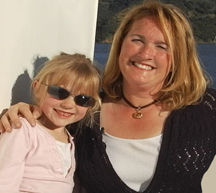
Protect your most valuable possession - Your Family and Be Prepared Today!
Updated Aug. 24, 2014: On behalf of Angel Island Tiburon Ferry and our entire crew we wish the injured and displaced a speedy recovery from today’s 6.0 earthquake in Napa, California. Reports show only 50% of people have a family plan for emergencies, in light of this recent natural disaster, it is more important than ever to create a “Family Emergency Plan” with the easy guide provided below. ~ Captain Maggie Mcdonogh
A natural disaster can hit anytime – in the middle of the night while you are sleeping, while you are at work and the kids are at school, or even while you are out of town on vacation… “Be Prepared” for any type of emergency or disaster by creating a Family Emergency Plan to cover the following areas of home and family safety:
-
Escape Routes – put an escape route plan in place and do practice drills on a monthly basis. Have a few scenarios to choose from depending on the type of emergency, earthquake, fire, etc. which may change the available escape routes accordingly. Draw a map on paper to hang on each family member’s bedroom door.
-
Identify 2 meeting locations 1 near your home – for instance “at your neighbor’s house or on the corner of your street” – and a second location if going home is not an option – for example: At the fire station, or grocery store you are all familiar with.” Document these locations on your Family Plan materials and quiz or review children periodically to be sure they remember the plan!
-
Family communications: Identify an out-of area contact person and provide the number to all family members to call in the event you cannot communicate in state. Keep the message brief to keep lines open. Communicate your whereabouts and safety status and wait for further communications and/or instructions on how to proceed. Every person should carry an identification card with emergency contacts and numbers to call in the event of an emergency.
-
Utility shut-off and safety: For your safety – please review the guidelines on this topic provided by FEMA at Ready.gov – and remember if you shut off your gas main a qualified professional must turn it back on – never attempt to turn it back on yourself!
-
Insurance and vital records: Protect yourself, your family, and your belongings with the proper insurances. Keep copies of all important documents in a water-proof, fire-proof portable box/container with your emergency kit. Keep all originals in a safety deposit box or other safe – of-site local. Make a record with video or images of your personal property and keep a back up copy off location.
-
Special needs – there are many special needs cases – you know best how to manage your particular situation to be prepared for anything. think of all the supplies such as batteries, oxygen, catheters, medications, etc., that you require to exist everyday and have a three day supply on hand in a carryall to take with you if you need to evacuate. Create a buddy system in your neighborhood and identify who will take care of who when it comes to neighbors whom are immobile, aged, or without transportation.
- Have wheelchairs accessible with pre-planned escape routes, extra hearing aid supplies, on hand, etc. depending on your needs.
-
Pets: Identify pet shelter options ahead of time; have vaccinations up to date, and pack a supply kit for your furry loved ones as well!
-
Safety Skills – Learn “how to save a life” by taking a CPR and First Aid Class. Check with your local American Red Cross or municipality for classes and rates.




Pingback: Red Cross Heroes event reveals Angel Island Ferry’s strength is in its people « Captain Maggie